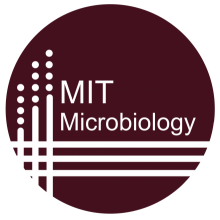
Abstract: As the most abundant biological entity in the biosphere, bacteriophages play a critical role in shaping microbial diversity, and thus overall ecosystem health. They are also essential tools in molecular biology, shedding light on fundamental biological concepts. T4 phage, with its complex lifecycle and genetic content, has been instrumental in many such discoveries. However, many questions regarding gene regulation in T4 phage remain unanswered. In this study, we employ end-enriched RNA-seq (Rend-seq) and ribosome profiling to examine T4 RNA and protein synthesis throughout the course of infection, gaining new insights at the transcriptional, translational, and genomic level. At the transcriptional level, we identified transcript boundaries, novel putative promoters, and new potential cleavage sites for the T4 endoribonuclease RegB. At the translational level, we identified many instances of previously unreported changes in translational efficiency over the course of infection, indicating the presence of intricate and uncharacterized mechanisms of regulation. Collectively, transcriptional and translational controls lead to precisely tuned protein synthesis rates during infection, as exemplified by the phenomenon that components of T4 protein complexes are synthesized according to their stoichiometry— a principle that has been observed in organisms during steady-state growth. Finally, we identified and experimentally validated T4’s 290th gene, 61.-1. Though non-essential to T4 in laboratory conditions, this gene has homologs present in a number of other phage and drastically impacts E. coli growth when ectopically expressed. This study provides insights into T4 phage biology, paving the way for further exploration into molecular biology, virology, and biotechnology; our rich data set can be utilized by future studies to answer a diverse array of inquiries.
Committee Members: Alan Grossman (Praecis Professor of Biology, MIT), Uttam Rajbhandary (Lester Wolfe Emeritus Professor of Molecular Biology, MIT), and Sophie Helaine (Associate Professor of Microbiology, Harvard Medical School)